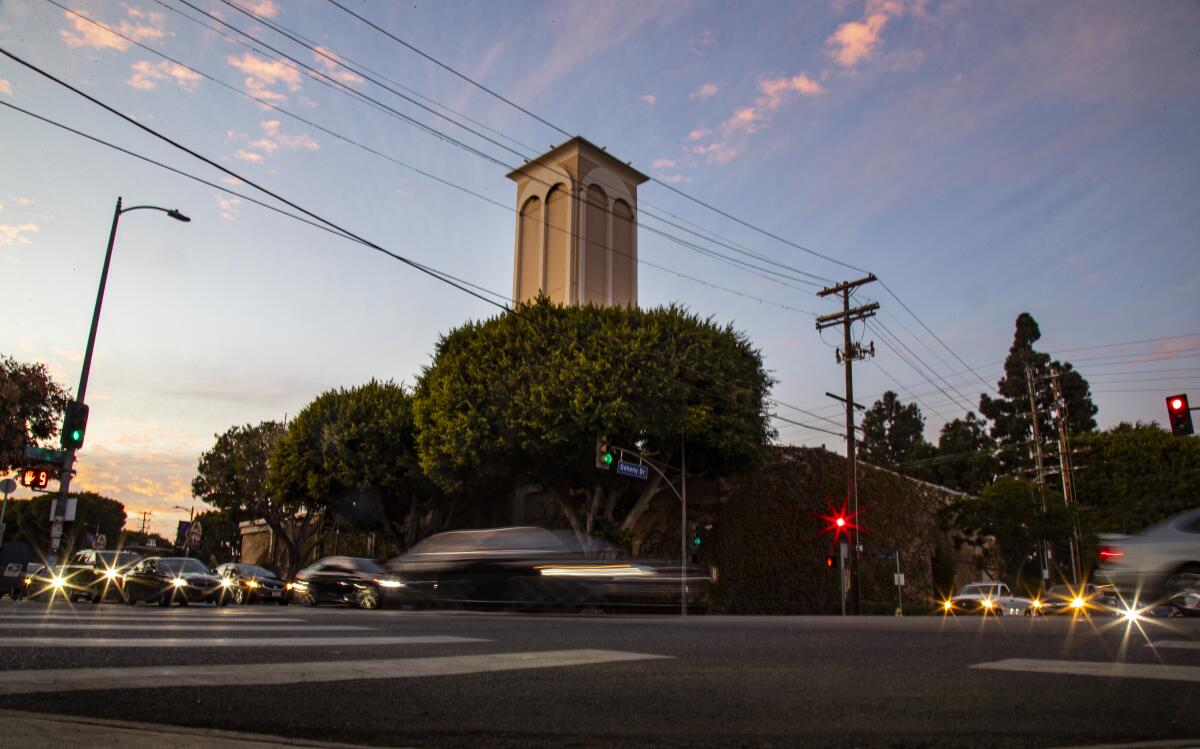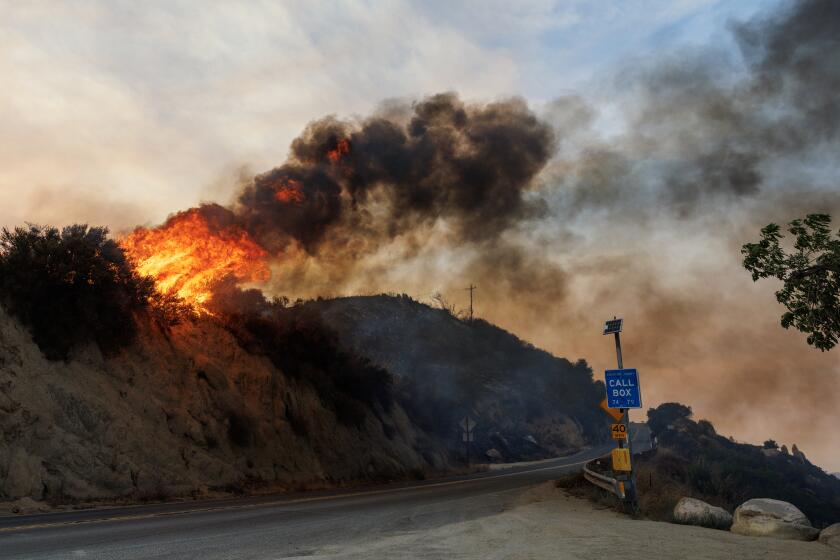A Westside oil site was supposed to undergo regular reviews. That didn’t happen

When Westside residents battled plans to step up production at an oil drilling facility on Pico Boulevard, they picketed outside the site and once brought children to a city hearing with signs pleading, “Don’t you care about us?”
Their fight ultimately went from City Hall to the courtroom and ended nearly two decades ago with a legal settlement meant to protect neighbors from noise and fumes.
That deal with the city and Breitburn Energy included a requirement meant to keep problems from recurring once the facility was renovated. There were supposed to be regular reviews by the city every five years after an initial study, a requirement that could allow the city to stiffen its rules for operating the oil site if needed.
That didn’t happen. City officials say that the operator didn’t take the steps to initiate such regular reviews around 2010 and 2015. And the city didn’t do them.
“We wanted to make sure that things would continue to be monitored,” said Rae Drazin, one of the members of Neighbors for a Safe Environment, which sued the city and the oil company. But the community activists “got burned out” and didn’t follow up.
Drazin and another member of the group are now calling for a “long overdue” review and urging new requirements for running the site, including the installation of equipment to continuously track emissions. In recent months, neighbors have again raised concerns about foul smells from the Pico site, which has tall walls and a tower obscuring its equipment.
Rabbi Yonah Bookstein, who heads the newly formed Pico-Robertson Health and Safety Coalition, said that some people refuse to come to his synagogue nearby because of the odor. At a City Hall hearing last month, Councilman Paul Koretz said people at the Pico Shul could smell and even taste oil and lamented how close the facility was to homes.
Koretz did not, however, mention the settlement requirements that could give the city a chance to tighten rules at the site. The lapse in the required reviews was brought to light by community members, including a West Adams resident and UCLA history professor who has been needling the city for years to do regular inspections of oil sites across Los Angeles.
That professor, Michael Salman, complained that politicians like Koretz were grandstanding about oil companies while failing to take basic steps to properly oversee petroleum sites, including the Pico Boulevard facility.
L.A.’s “foot-dragging on the inspections issue has already had some serious consequences ... that jeopardize the environment, public health, and safety,” Salman wrote in an email to Koretz aides and other city officials highlighting the missing reviews.
City Atty. Mike Feuer, who represented the Westside area on the council when neighbors were fighting against the renovation of the site, said he had “no idea” why the required reviews did not happen and said they should.
The planning department, he said, would generally be responsible for following up on such city reviews, but “I don’t know enough about what did or didn’t happen in the intervening 15 or 20 years to ascribe responsibility.”
Koretz aide Andy Shrader said that the councilman was unaware until recently of the agreement with Neighbors for a Safe Environment, which requires the operator to initiate the review process. Shrader said they had asked city staffers to “reinitiate the settlement agreement terms with the new operator, who might have been ducking them or may not have been aware.”
The Pico Boulevard site is now operated by Pacific Coast Energy Co., a successor to Breitburn. In response to questions, a company representative pointed to a city finding in 2006 that the facility did not pose an ongoing health risk.
“Pacific Coast Energy Co. operates in strict accordance with our conditions of approval and applicable regulatory requirements,” confirmed through inspections by other agencies, said Ben Oakley, its manager of environment, health and safety.
Oakley did not address questions about whether the company was aware of the requirement for regular reviews and whether anyone at the city had previously brought that to its attention.
Salman, who first became involved in oil issues in his South L.A. neighborhood, argued that any “serious inspection” would have tipped off the city that reviews were supposed to be happening.
The City Council voted last year to draft an ordinance creating an annual inspection program for oil wells and facilities, but no law has come back for council approval. As of last week, L.A. was still finalizing a contract with an outside company to help develop the inspection program, according to its Department of Public Works.
Much of the focus, both for environmental activists and the council, has instead been on the idea of imposing a setback requirement between homes and oil and gas facilities, which could shutter many Los Angeles drill sites nestled in neighborhoods.
In October, environmentalists and oil workers packed a committee meeting where the city petroleum administrator presented a report estimating that requiring such a setback on existing sites could cost the city more than $700 million. Environmental advocates disputed those estimates and urged the city to press forward, while industry groups railed against the idea.
There was scant discussion of the inspection ordinance. During public testimony, one environmental activist argued that “inspecting and regulating have simply not worked” and that urban drilling needed to be phased out entirely.
Inspections “will never actually achieve the goal of making it safe for the surrounding community,” said Eric Romann, coordinator of the Stand L.A. coalition, in a later interview.
More than two years ago, Koretz introduced a motion asking city agencies to examine the Pico Boulevard facility and other drill sites in his district, but nothing happened. Shrader told residents that Koretz had instead decided to support citywide efforts.
Bookstein said he wants a review of the Westside site but that his chief goal is barring oil facilities near sensitive sites. “If I were to advocate for annual inspections, it would be a concession that I want to have this next to us for the foreseeable future,” he said.
Records for the South Coast Air Quality Management District, which handles complaints about emissions, show no recent violations at the Pico Boulevard site, but an inspection last year by the fire department found that the site had “combustible materials” on the ground. Pacific Coast Energy was ordered to remove any petroleum waste from the ground near wells and equipment.
Salman argued that based on city records, the operator had also violated city requirements by installing micro-turbines without seeking approval from the planning department, noting that city conditions had barred generating electricity on site.
Planning department spokesman Yeghig Keshishian did not comment on whether any conditions had been violated, but said the agency was weighing “appropriate next steps, which may include reviewing all of the operating conditions of approval.”
More to Read
Sign up for Essential California
The most important California stories and recommendations in your inbox every morning.
You may occasionally receive promotional content from the Los Angeles Times.











